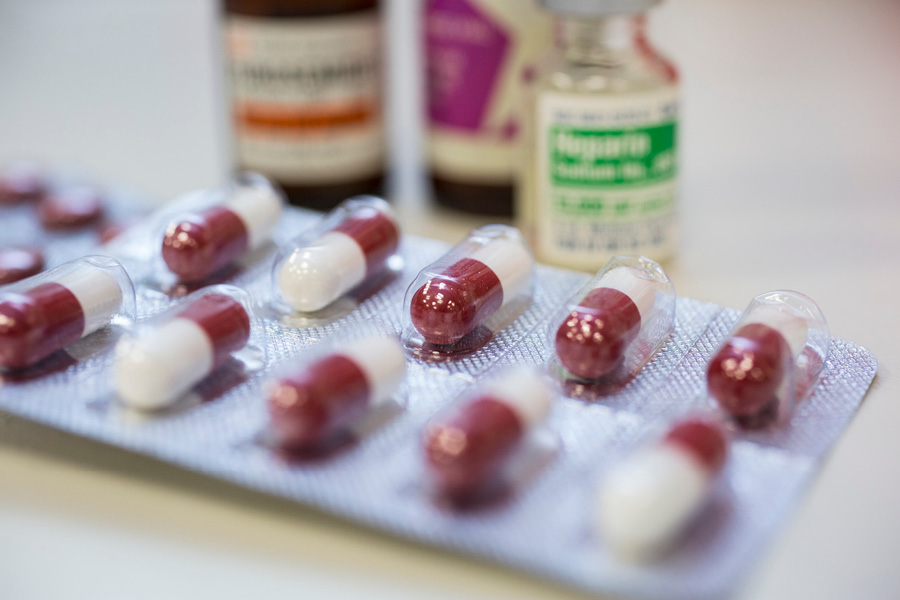NYITCOM Physician: Diabetes Patients Should Heed FDA Warning
In late February, the Food and Drug Administration (FDA) warned diabetes patients not to use smartwatches or smart rings to measure their blood glucose levels. Following the FDA’s alert, obesity medicine expert Eleanor Yusupov, D.O., assistant professor at the College of Osteopathic Medicine, shares valuable insight for these patients.
While many of these devices are marketed as noninvasive solutions, allowing users to measure their blood glucose levels without pricking the skin, Yusupov notes that the FDA has not authorized, cleared, or approved any noninvasive smartwatch or smart ring to measure glucose. What’s more, relying on these devices could have life-threatening consequences.
“It is very concerning that patients may be misled by the marketing claims and rely on smartwatches or smart rings that do not accurately measure blood glucose,” says Yusupov. “Using devices that are not approved by the FDA may lead to serious health consequences. If left untreated, very high or very low blood sugar can be extremely dangerous and cause severe complications, even coma and death.”
Instead, she advises patients with diabetes to use continuous glucose monitoring (CGM) devices approved by the FDA and provide accurate information about how a patient’s body reacts to diabetes medications and foods eaten. Depending on the specific CGM device used, physicians may program it to set off an alarm when blood sugar is dangerously high or low.
“Your doctor can recommend and prescribe a continuous glucose monitoring device that automatically checks your sugar and sends the result to your smartphone or a smartwatch. Most patients prefer this modern technology, which uses a tiny sensor placed in the arm, to traditional glucose meters that require pricking your finger,” she says.
Yusupov adds that, for some patients, monitoring blood glucose can be done at regularly scheduled doctor’s visits and does not need to be done daily. However, people using insulin or multiple diabetes medications are advised to monitor their blood sugar daily or several times a day to avoid dangerously high or low readings.
More than 38 million Americans are estimated to have diabetes, with 8.5 million believed to be living with the condition undiagnosed. In addition, 38 percent of the United States adult population is estimated to have prediabetes, a serious condition that increases the risk of developing type 2 diabetes, heart disease, and stroke.
Learn more about diabetes signs and symptoms.
More News

“Match” Madness
On March 21, members of NYITCOM’s Class of 2025 discovered where they will complete their residency training.

Medical Students Receive Residency “Marching Orders”
Upon graduating this spring, 14 members of NYITCOM’s Class of 2025 will complete their residency training in the U.S. Armed Forces.

A Call to Medicine
After her grandfather was seriously injured in a collision and witnessing his lack of access to specialists, Harley Duncan decided she wanted to be part of the solution. With the goal of becoming a neurologist, she is committed to practicing near the underserved community where she was raised.

Pioneering NYITCOM Cardiologist Recognized by the National Academy of Inventors
Todd J. Cohen, M.D., is one of 170 exceptional innovators elected to the organization’s 2024 Class of Fellows. The fellowship is the highest professional distinction awarded solely to inventors.

OMM Lab Rededication Ceremony Honors NYITCOM Founder
On December 6, NYITCOM celebrated the grand reopening and rededication of the NYITCOM Osteopathic Manipulative Medicine Lab, honoring the legacy of Stanley Schiowitz, D.O., founder, chairman, and dean of NYITCOM.

Pharmacy Closures Are a Prescription for Catastrophe
As national retail pharmacy chains collectively shutter thousands of locations nationwide, NYITCOM Associate Professor Maria Pino, Ph.D., explains the potential impact on Long Island, where more than a dozen Rite Aid stores have already disappeared.